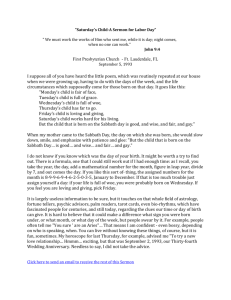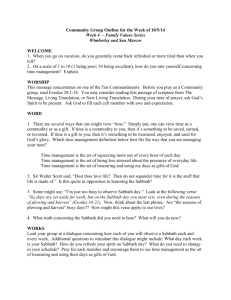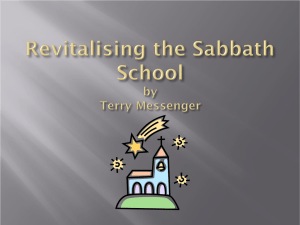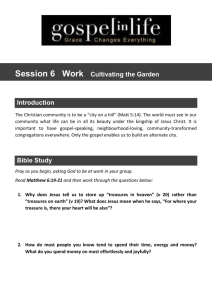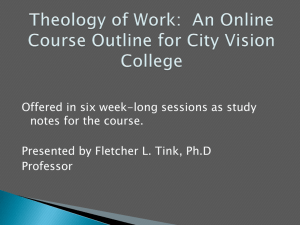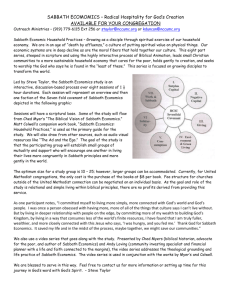Sabbath Week 4: Embracing
advertisement
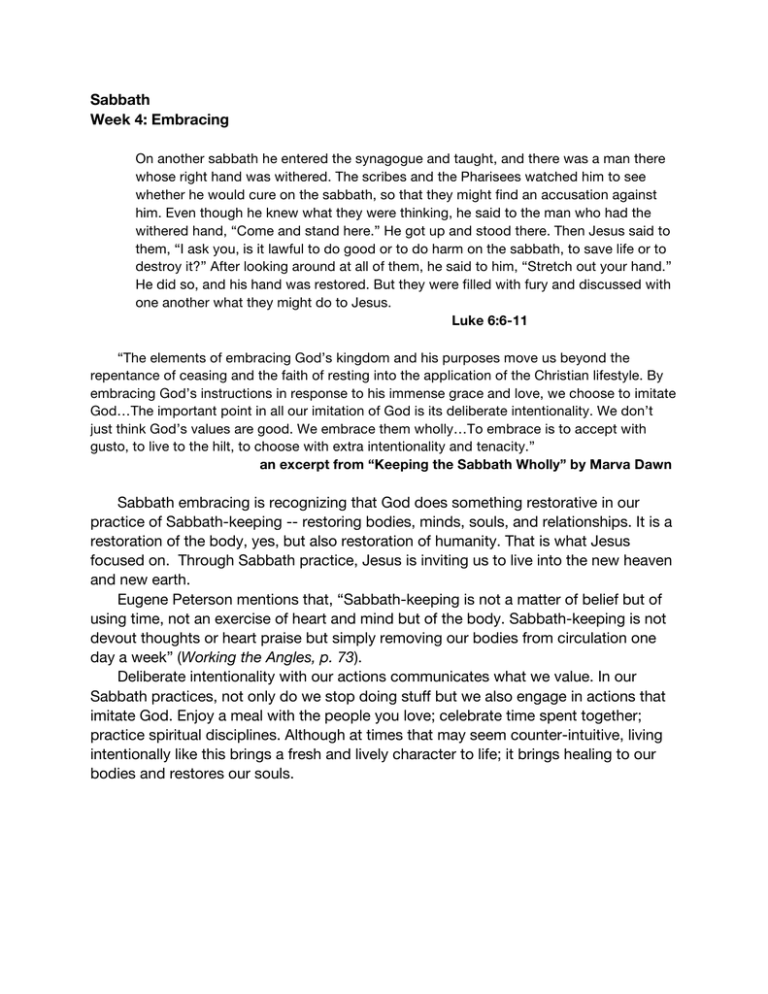
Sabbath Week 4: Embracing On another sabbath he entered the synagogue and taught, and there was a man there whose right hand was withered. The scribes and the Pharisees watched him to see whether he would cure on the sabbath, so that they might find an accusation against him. Even though he knew what they were thinking, he said to the man who had the withered hand, “Come and stand here.” He got up and stood there. Then Jesus said to them, “I ask you, is it lawful to do good or to do harm on the sabbath, to save life or to destroy it?” After looking around at all of them, he said to him, “Stretch out your hand.” He did so, and his hand was restored. But they were filled with fury and discussed with one another what they might do to Jesus. Luke 6:6-11 “The elements of embracing God’s kingdom and his purposes move us beyond the repentance of ceasing and the faith of resting into the application of the Christian lifestyle. By embracing God’s instructions in response to his immense grace and love, we choose to imitate God…The important point in all our imitation of God is its deliberate intentionality. We don’t just think God’s values are good. We embrace them wholly…To embrace is to accept with gusto, to live to the hilt, to choose with extra intentionality and tenacity.” an excerpt from “Keeping the Sabbath Wholly” by Marva Dawn Sabbath embracing is recognizing that God does something restorative in our practice of Sabbath-keeping -- restoring bodies, minds, souls, and relationships. It is a restoration of the body, yes, but also restoration of humanity. That is what Jesus focused on. Through Sabbath practice, Jesus is inviting us to live into the new heaven and new earth. Eugene Peterson mentions that, “Sabbath-keeping is not a matter of belief but of using time, not an exercise of heart and mind but of the body. Sabbath-keeping is not devout thoughts or heart praise but simply removing our bodies from circulation one day a week” (Working the Angles, p. 73). Deliberate intentionality with our actions communicates what we value. In our Sabbath practices, not only do we stop doing stuff but we also engage in actions that imitate God. Enjoy a meal with the people you love; celebrate time spent together; practice spiritual disciplines. Although at times that may seem counter-intuitive, living intentionally like this brings a fresh and lively character to life; it brings healing to our bodies and restores our souls. Here are some questions to talk about with your group: So Sabbath is more than just stopping – it involves embracing Sabbath practices, a distinctly Christian lifestyle. What kind of Christian disciplines do you think would be helpful to start practicing? What do you see God doing in the world, and how can you be part of it? Can you think of someone who may be “old” in years but is still fresh and lively because of God’s presence in their life? What kinds of patterns fill your life right now? Do you ever feel scattered by your commitments? (Sabbath is meant to integrate the scattered things of our lives) Blocking off a Sabbath day to do nothing of your normal work might make you feel nervous or guilty – think of some ways that you can help each other to overcome this by adopting/embracing some positive Sabbath activities. Start somewhere manageable. What if you started thinking about Sabbath as time to get creative and be more generous with your time, money, and energy? How would that change your perspective of “Sabbath”? Where do you find the strength to keep going week to week? How can others help you embrace? Closing Prayer: Gracious and empowering Lord, may our Sabbath worship empower us in living our walk with you every day. Empower us with the spirit of generosity. Strengthen and heal our community as we gather. In Jesus’ name we pray; Amen.
